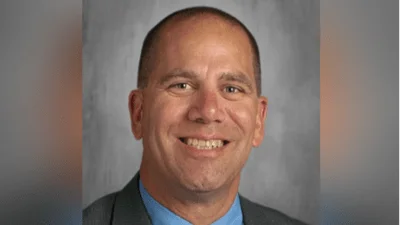Jerry L. O\'Connor, Wisconsin State Representative for 60th District | www.facebook.com
Jerry L. O\'Connor, Wisconsin State Representative for 60th District | www.facebook.com
According to the Wisconsin State Legislature's official website, the bill was described as follows: "various changes to the unemployment insurance law. (FE)".
The following is our breakdown, based on the actual bill text, and may include interpretation to clarify its provisions.
In essence, this bill mandates several modifications to Wisconsin's unemployment insurance laws. It introduces identity-proofing measures for claimants, aligning with standards from the National Institute of Standards and Technology's Digital Identity Guidelines. The statute of limitations for prosecuting fraud related to UI benefits is extended from six to eight years. Additionally, the Department of Workforce Development will provide training materials, including videos and live seminars, and operate an assistance call center with extended hours during emergencies or increased call volumes. Weekly database comparisons will be conducted to detect fraud, with the department required to report any reductions in fraud detection measures. The bill becomes effective the Sunday after its publication.
The bill was co-authored by Senator Dan Feyen (Republican-20th District), Representative Barbara Dittrich (Republican-99th District), Representative Cindi Duchow (Republican-97th District), Representative Chanz J. Green (Republican-74th District), Representative Rick Gundrum (Republican-58th District).
Jerry L. O'Connor has co-authored or authored another 88 bills since the beginning of the 2025 session, with none of them being enacted.
O'Conner graduated from Minnesota Bible College in 1973.
O'Conner, a Republican, was elected to the Wisconsin State Assembly in 2025 to represent the state's 60th Assembly district, replacing previous state representative Robert Brooks.
In Wisconsin, the legislative process starts when a senator, constituent, group, or agency proposes an idea for a bill. After drafting, the bill is introduced, numbered, and referred to a committee for review and public input. If approved, it moves through three readings and votes in both the Senate and Assembly. Once both chambers pass the same version, the bill goes to the governor, who can sign it, veto it, or let it become law without a signature. Only a small share of bills introduced each session ultimately become law. You can learn more about the Wisconsin legislative process here.
| Bill Number | Date Introduced | Short Description |
|---|---|---|
| AB168 | 04/08/2025 | Various changes to the unemployment insurance law. (FE) |
| AB162 | 04/08/2025 | Workforce metrics. (FE) |
| AB152 | 04/02/2025 | Bid requirement for publication and printing of county board proceedings, notices, and advertisements in counties having a population of 250,000 or more and at least two English newspapers published daily |
| AB90 | 02/28/2025 | Copies of and inspection or disclosure of information contained in certain vital records. (FE) |
| AB58 | 02/24/2025 | Flags flown, hung, or displayed from a flagpole or the exterior of state and local buildings and eliminating a related administrative rule |
| AB21 | 02/06/2025 | Technical colleges’ lease of their facilities to others. (FE) |


 Alerts Sign-up
Alerts Sign-up